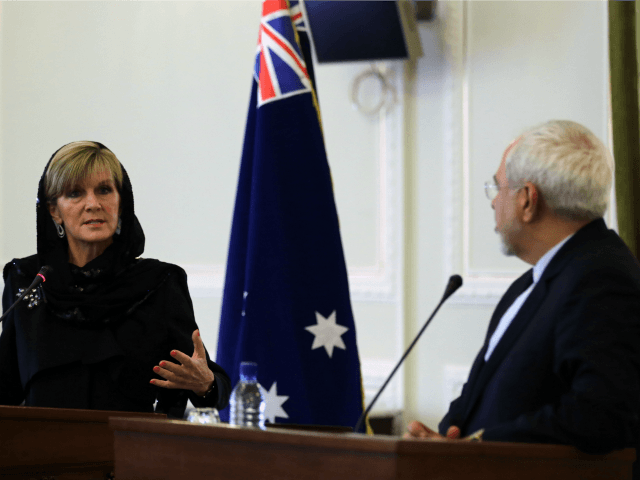CANBERRA, Australia (AP) — Iran’s foreign minister on Tuesday used a meeting with his Australian counterpart to reject a U.S. argument that the test-firing of Iranian missiles last week violated a U.N. resolution.
Mohammad Javad Zarif had a detailed conversation with Australian Foreign Minister Julie Bishop about legal and technical issues surrounding Iran’s test-firing of two ballistic missiles.
The United States called a Security Council meeting on Monday to protest the launches, which Secretary of State John Kerry called a violation of U.N. resolutions that “could invite additional sanctions.”
Samantha Power, the U.S. ambassador to the United Nations, said after Monday’s closed meeting that the ballistic missiles “were designed to be capable of delivering nuclear weapons,” and called the launches “dangerous, destabilizing, and provocative.”
But Russia’s U.N. ambassador, Vitaly Churkin, told reporters that Moscow had no information that the missiles could carry nuclear weapons and that there was no violation of the resolution.
At issue is the Security Council resolution adopted after the Iranian nuclear deal was signed last year, calling for Iran not to launch any ballistic missiles capable of delivering a nuclear weapon.
Zarif said that Iran had not violated resolution 2231, but that the tests may have violated the resolution it superseded, 1929, which used different language.
“First of all, it doesn’t use obligatory terms that are used in the Security Council, so Iran is not obliged by 2231 — it calls upon Iran,” Zarif told reporters at Australia’s Parliament House.
“Secondly, it creates a narrower definition of the missiles. That is, missiles that are designed to be capable — not capable — designed to be capable of carrying nuclear war heads,” he added.
Bishop did not express an opinion on whether the tests had breached resolution 2231.
“Having heard the foreign minister’s explanation, it is Australia’s position that should the U.N. Security Council wish to investigate this matter, then that would be the proper legal process for it to do so,” Bishop said.
Power said that the missile tests merit a response from the Security Council, but that Russia’s contention that the launches did not violate resolution 2231 all but rule out any council action.
Last Wednesday’s missile test was aimed at demonstrating that Iran will push ahead with its ballistic program after scaling back its nuclear program under the deal reached last year with the U.S. and other world powers.
On the first Australian visit by an Iranian foreign minister since 2002, Zarif welcomed Russia’s decision to begin withdrawing forces from Syria, where a fragile cease-fire is holding between state forces.
“The fact that Russia announced that it’s withdrawing part of its forces indicates that they don’t see an imminent need to resort to force in maintaining the cease-fire,” Zarif said.
“That in and of itself should be a positive sign. Now we have to wait and see,” he added.

COMMENTS
Please let us know if you're having issues with commenting.